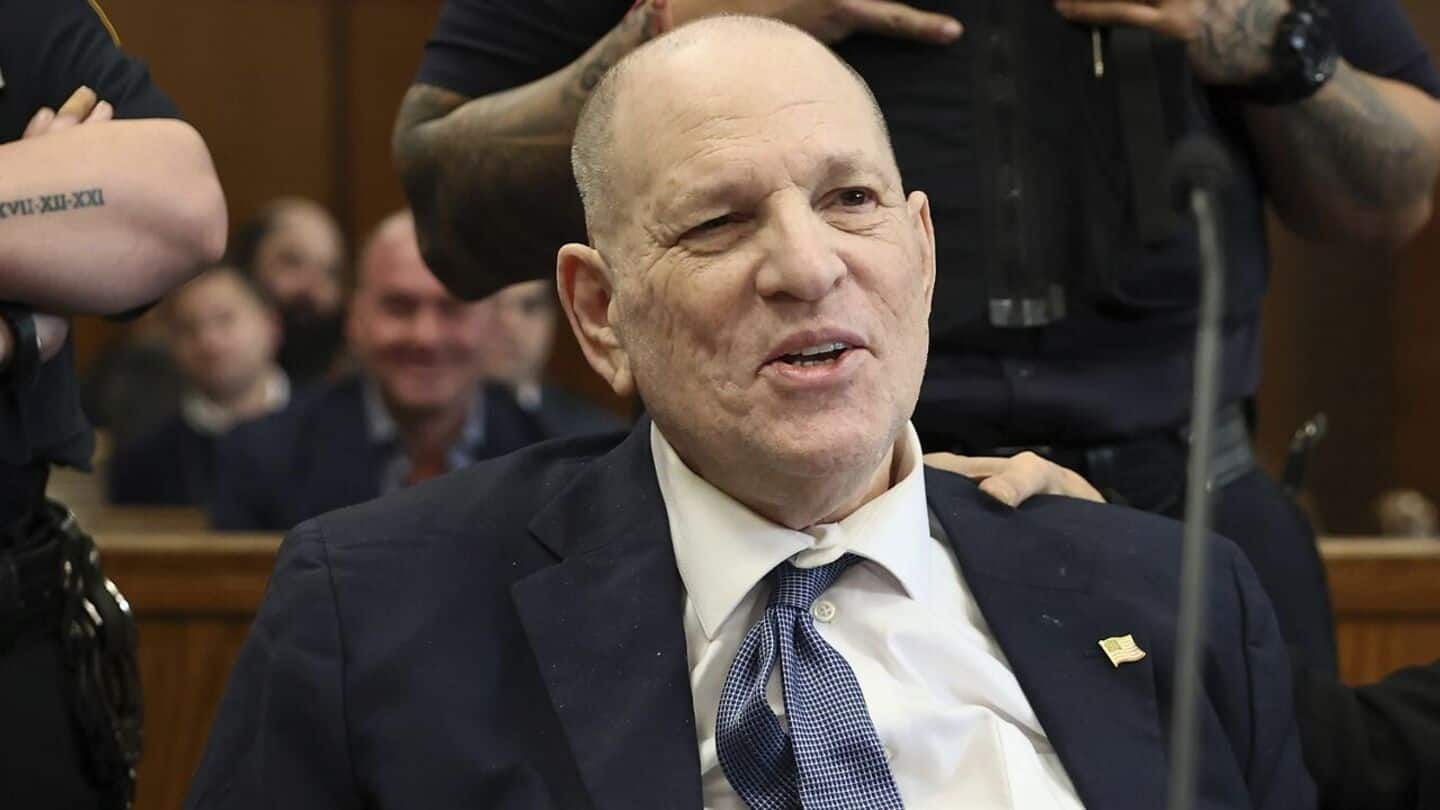
How Harvey Weinstein's retrial will be different from 2020 suit
What's the story
Disgraced Hollywood producer Harvey Weinstein, a former titan of the industry, is once again facing a jury. His retrial, which commenced last week, has reopened a case that had a major impact on the #MeToo movement.
Back in 2020, Weinstein was convicted on two out of five charges—sexually assaulting an accused and raping another. He was acquitted of the graver charge of predatory sexual assault.
As the retrial begins, here's how the current climate might affect the results.
Overturned conviction
First, more about Weinstein's 2020 conviction
In April 2024, New York's highest court overturned Weinstein's 2020 sexual assault and rape convictions.
The Court of Appeals ruled that the trial judge had wrongly permitted testimony from multiple women whose accusations were not formally included in the charges.
This testimony could have "unfairly influenced" the jury, resulting in the overturned convictions.
Nevertheless, Weinstein remains imprisoned under a separate 16-year sentence from a 2022 Los Angeles rape conviction.
Health concerns
Weinstein's health and recent transfer to NY hospital
As Weinstein awaits his retrial at New York's Rikers Island jail complex, questions regarding his health continue to linger.
The 73-year-old has pleaded with a Manhattan judge to speed up the proceedings, calling Rikers a "hellhole."
He has also sued New York City for allegedly being denied adequate medical care for chronic myeloid leukemia and diabetes.
In a recent ruling, the producer was granted a hospital stay and transferred from Rikers to New York Hospital for the retrial.
Defense strategy
Let's look at Weinstein's defense strategy and legal team
Weinstein's legal team includes some illustrious lawyers like Arthur Aidala and Jennifer Bonjean.
While Aidala has publicly denounced the phrase "believe women" as "anti-American," Bonjean famously appealed Bill Cosby's conviction.
Their defense rests on the notion that Weinstein's relations with his accusers were consensual and transactional.
Meanwhile, the storm that spread in 2018 and got bolstered in 2020 with Weinstein's conviction is nowhere as strong now.
Sexual abuse lawsuits have increasingly seen smear campaigns being peddled to change public perception.
#MeToo movement
The retrial's impact on #MeToo movement
During Johnny Depp versus Amber Heard, social media messaging and PR campaigns largely defined how society felt about the case.
More recently, Blake Lively also accused Justin Baldoni of orchestrating a smear campaign against her.
The retrial of Weinstein is likely to test how far society has come in terms of understanding sexual assault, the dynamics of power, and the definition of a survivor.
The case's outcome may well define the future of #MeToo.